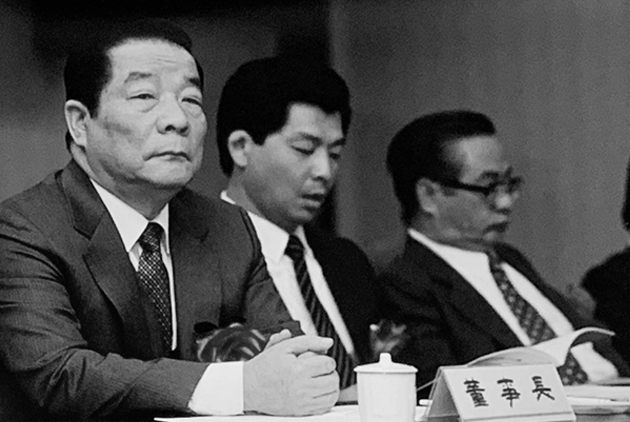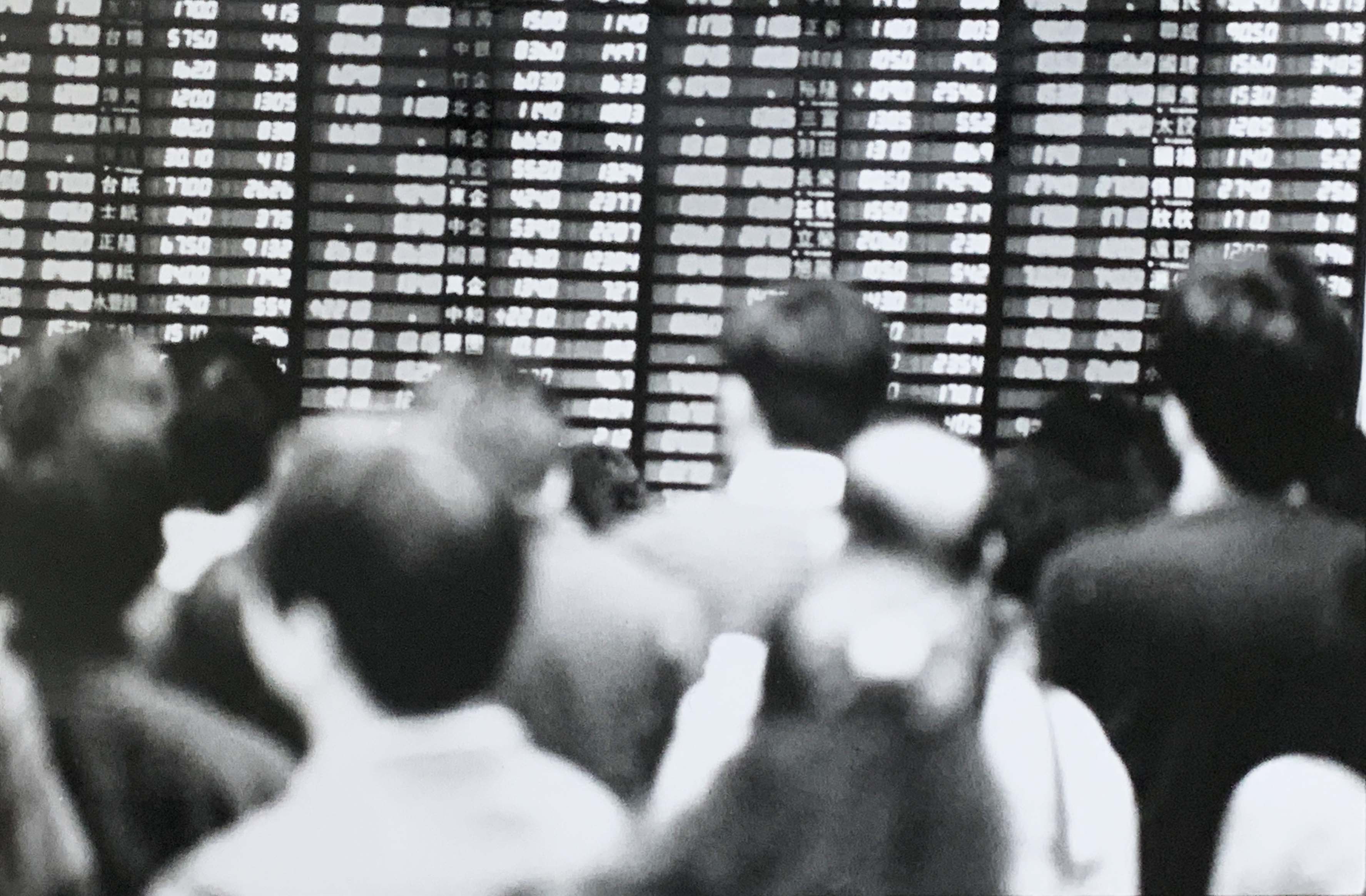Open · Taiwan
1988: The rise of Tsai Wan-lin, the richest Chinese in the world

Source:CommonWealth Magazine
He has a net worth of over NT$160 billion and is the eighth-richest man in the world. A solitary man who enjoys golfing alone, he works in a heavily guarded 1,653-square-meter private office. His heavy-handed manipulation of real estate investments has driven up land prices in Taiwan. How did this poor farmer’s son build an empire in half a century?
Views
1988: The rise of Tsai Wan-lin, the richest Chinese in the world
By Ming-fang DiaoCommonWealth Magazine
(This article was originally published 1988-08-01)
At 64 years of age, Tsai Wan-lin is the richest man in Taiwan, though he started out as a poor farmer’s son in Miaoli’s Zhunan Township. With a net worth of US$5.6 billion, he is among the world’s top ten richest men, and is the number one richest ethnic Chinese. What is the secret to his success?
Cathay Life Insurance makes 150 million dollars in insurance fees every day. It pulls in more revenue than Chunghwa Post or Taipower. Even manufacturing champion Nan Ya Plastics cannot compare.
Cathay’s current capital is close to 100 billion. It owns 109 office buildings all over Taiwan. It leases the ones it is not using, raking in another 1.3 billion in rent every year.
According to Forbes Magazine, Tsai Wan-lin is the eighth-richest man in the world.
However, the world knows very little about him.
Tsai has a 1,653-square-meter private office on the 28th floor of his headquarters. He hardly has any friends. “He rarely entertains guests. He golfs by himself.” Cathay stockholder Koo Chen-Fu describes Tsai as a man who enjoys being alone.
And yet, everything Tsai does influences the welfare of 1.3 million insurees. When he threw Cathay Life Insurance’s hefty capital behind Cathay Real Estate to pump up property prices, the whole country felt it.
“It was an invisible hand playing with Taiwan’s land prices,” a government official says, “He sold the country without anyone catching on.”
An old hand in the financial sector offers an analysis: The rise of Tsai is connected with the nascent Taiwanese economy. “Whoever has the most money wins.” Tsai took the public’s money and fattened his own purse. Choosing the traditionally oligarchic financial sector as his arena meant he faced scant competition.
Tsai also flourished because he knew how to hold on to a good thing. He traded capital for land and further consolidated his empire.
“In other words, at least half of Tsai’s wealth was given to him by the people, scot-free,” says the industry expert.

Regarding the rising land value, Kuomintang Central Committee member Kao Hsin offers a revealing critique. In 25 years, the value of the land held by Cathay grew by a hundred times. Ultimately, it was worth much more than the 30 billion recorded in the books. This economic growth is the result of the country’s progress, and yet, only one man has reaped the benefits.
More than 30 years ago, when Tsai followed his older brother Tsai Wan-chun to Taipei to hawk produce, he proved himself to be a hard worker. It is said that when Tsai was Cathay’s vice president, he required multiple secretaries and assistants in his entourage when he went south on business trips, because he had superhuman vigor and would hardly take breaks.
In 1962, when Cathay Life Insurance first got off the ground, Tsai Wan-chun asked the local gentry to support the regional sales teams. In other words, he leveraged their reputation to Cathay’s benefit. Strategically, he renamed endowment insurance as “savings insurance”, (because talking about death is frowned upon in Chinese culture). This marketing ploy won over even more customers. In addition, Cathay built new buildings everywhere to solidify their brand image. In less than a year, they had become the industry leader.
Cathay employed military-style management methods, which made the organization more cohesive and boosted morale. At 8:30 every morning, each department conducted morning exercises, during which workers shouted slogans and sang the Cathay anthem. It bolstered the employees’ spirits.
At the end of 1979, the Cathay group fragmented. Tsai relinquished control of the 10th Credit Cooperative and took over Cathay Life Insurance. He took the conglomerate’s “most profitable company” and led it into an era of “steadfast management”.
At the time, Cathay Life Insurance held over half of the market. This gave Tsai everything he needed to make a killing.
First, he lowered the annual growth target from 50% to 30%. He then established a business development department that was responsible for both collecting insurance fees and selling more insurance policies, with a heavy emphasis on after-sales services. In its first year of existence, the department was credited with increasing the customer retention rate from 70% to 85%, while competitors languished at around 50%.
Tsai went further. In order to improve operational efficiency and prevent corruption, Tsai rotated middle and upper managers on a three-year basis. He went through three CEOs in his first eight years. In this way, he kept everyone on their toes.
A company of rich people
A senior manager reveals that Cathay has given its employees three chances to buy shares since its founding. His own wealth is measured in the hundreds of millions because he owns Cathay stocks. Cathay hands out year-end bonuses worth more than six months’ of salary almost every year, ensuring employee loyalty.
When asked about being ranked as the richest ethnic Chinese in the world by Forbes, Tsai had only this to say to his workers, “It is not so impressive that I am rich, but I am proud to say those who work with me are rich as well!”
Tsai’s “carrot and stick” approach has worked wonders. Cathay’s business is hitting the stratosphere. In the three years from 1980 to 1982, Cathay’s revenue grew by another ten billion. In comparison, the first ten billion took almost 20 years to make, (from its founding in 1962 to 1979). Average annual growth has held steady at around 30% for the last five years.
“Cathay’s business success is impeccable, but its corporate image leaves a lot to be desired,” says an official in the Ministry of Finance.
Insurance companies pour substantial capital into stocks and land, and they make a huge profit. But society as a whole pays the price. Earlier last year, Cathay snapped up a prime piece of real estate on Section 3 of Nanjing East Road, near the headquarters of China Airlines, for almost 900,000 dollars per ping (about 3.3 square meters). They also won a bid for property in the Xinyi Special District. This has aroused a lot of public criticism, and some legislators are asking the government to do something about how conglomerates are sending property prices through the roof.
It is clear that Cathay’s highest priority is to improve public perception. Besides running TV ads promoting their corporate image (You’ve seen their logo; the big green tree) and donating to charity (Last year they donated ten million dollars to help elderly veterans return home), Cathay is actually extremely cautious about media exposure and news reports. As the idiom goes, they know that a tall tree bears the full brunt of the wind.
However, many senior staff members at Cathay are more worried about the company holding too much capital. This is not only a problem for the authorities, but also a hurdle Cathay’s future leadership will need to address. Cathay has accumulated nearly 100 billion dollars in capital. Twenty billion are sitting in the bank, with nothing to spend it on. In five years, Cathay’s capital will reach 300 billion.
Others in the industry are wondering about another problem. Tsai rules with an iron fist and makes all the decisions. Will Cathay--and by extension, the entire LinYuan Group--be prepared for outside competition, which grows fiercer by the day? This real estate mogul has a knack for buying land, but friends have said he lacks “the daring of an entrepreneur”. Indeed, Tsai has never tried investing in anything else.
As cash pours into the country, it seems as if the very land beneath our feet is being swallowed up. Foreign insurance companies are also eager to stake a claim. It remains to be seen whether a man like Tsai, who has always been good at holding on to good things, can overcome his own limitations and rise to the challenge.
Have you read?
♦ 1984: The Legend of Chang Yung-fa, the Container Shipping King
♦ Online Banking Takes Shape in Taiwan
♦ 1983: Who defined the Taiwan lifestyle?
Translated by Jack Chou
Uploaded by Penny Chiang






